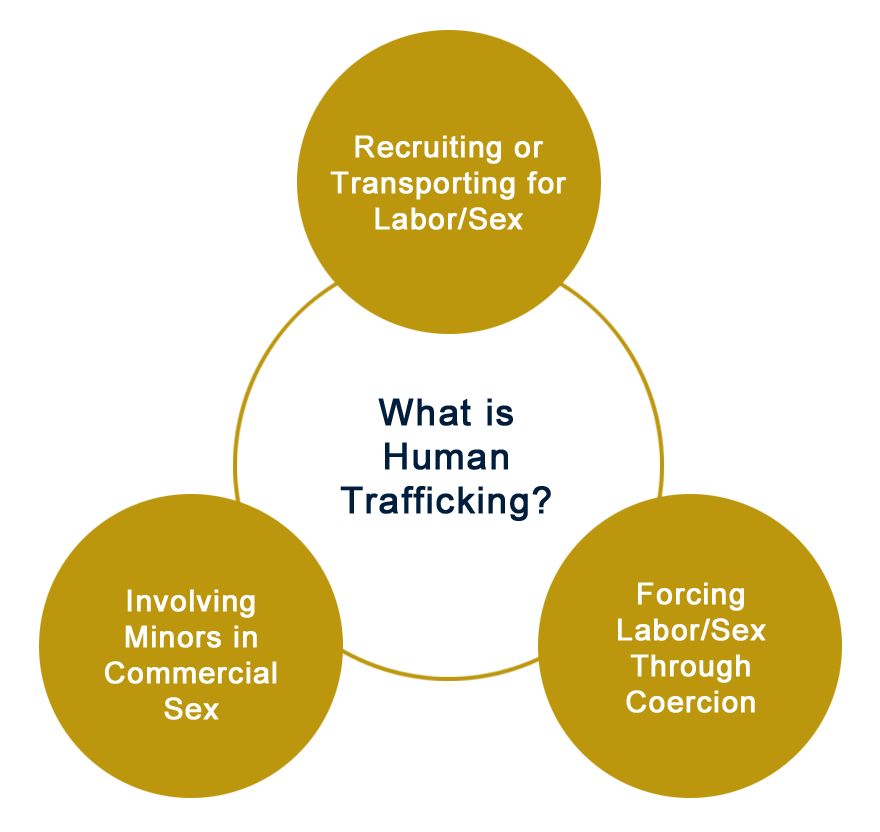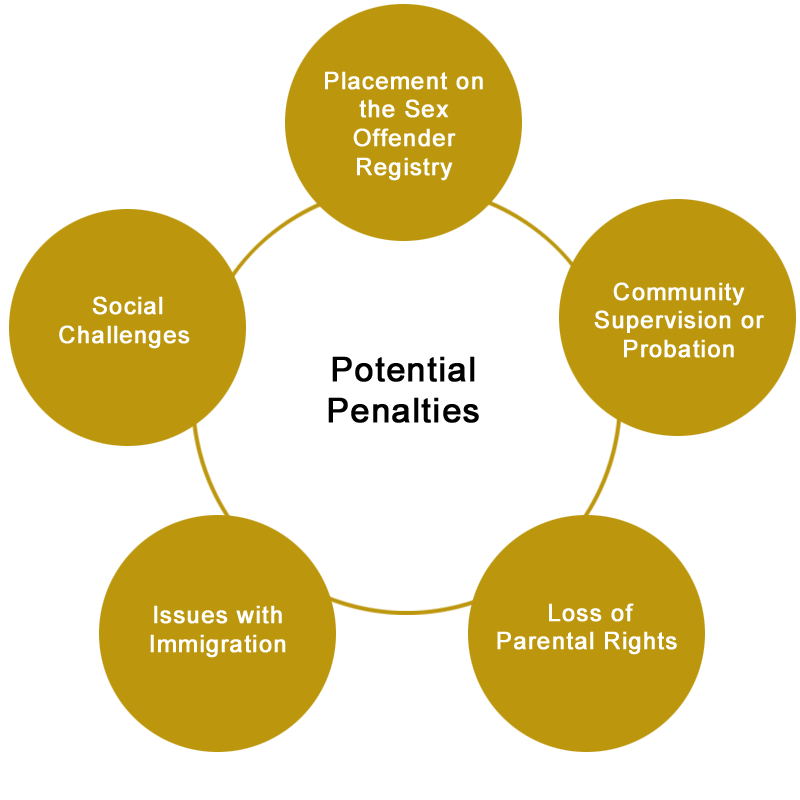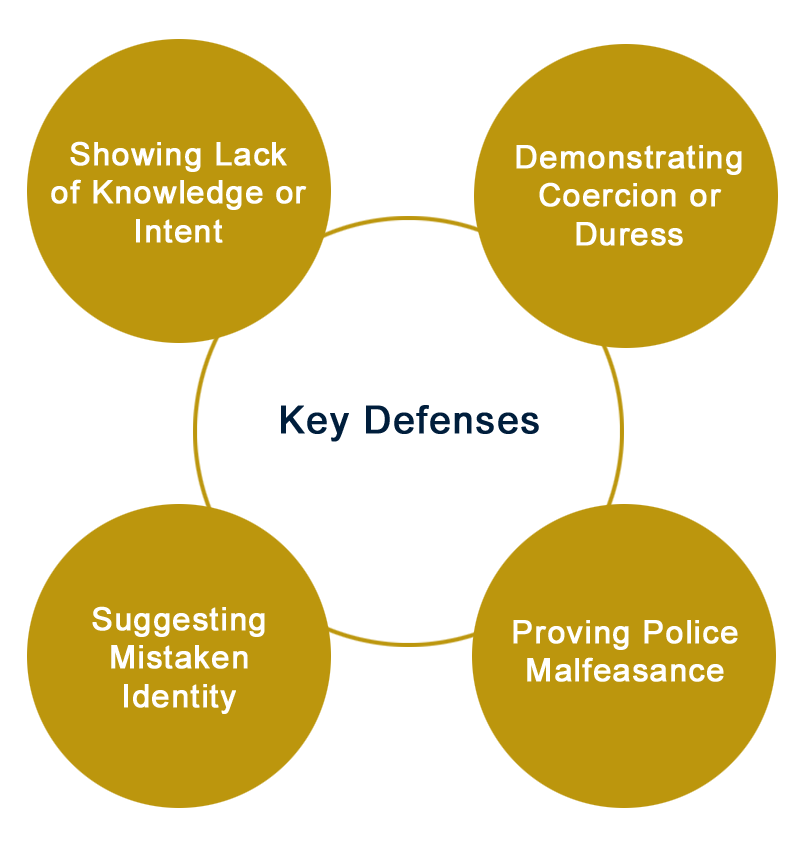One of the most serious crimes described by Georgia law, human trafficking is a charge that carries severe penalties and consequences. As such, it is vital that you understand not only the definition of the law as written, but also the potential consequences that each type of trafficking carries. Georgia law recognizes two classes of human trafficking: labor servitude and sexual servitude, each with its own specific legal penalties. At the Turner Firm, we strive to give our clients fair treatment under the law by vigorously defending against these charges.
 What Constitutes Human Trafficking?
What Constitutes Human Trafficking?
There are three criteria that define human trafficking under Georgia law. Engaging in any one of them could result in human trafficking charges, and they are:
- Recruiting or enticing another person in order to use them for labor or commercial sex, or transporting them or sheltering them as they are trafficked.
- Coercing another person through the use of force or fraud to perform labor or sexual acts without their consent.
- Involving a minor in an act of commercial sex, whether or not that involvement was achieved through force or coercion.
To secure a human trafficking conviction, prosecutors must prove beyond a reasonable doubt that the defendant intentionally participated in, or benefited from, the labor or sexual exploitation of the victim. They must also prove that the victim was led to be trafficked through fraud, coercion or force. In the case of minors who are sexually trafficked, prosecutors need only show that they were involved.
Categories of Human Trafficking in Georgia
As mentioned earlier, there are two main categories of human trafficking under Georgia law: labor servitude and sexual servitude.
As defined in O.C.G.A. § 16-5-46(a)(5), a person commits the act of trafficking for labor servitude “when that person knowingly subjects another person to or maintains another person in labor servitude or knowingly recruits, entices, harbors, transports, provides, or obtains by any means another person for the purpose of labor servitude.”
Common trafficking for labor servitude scenario is when migrants are tricked into indentured servitude by the promise of a high-paying job in an unfamiliar town. When they arrive, they realize too late that the job doesn’t pay what was promised, the work conditions are unsafe, and they are not allowed to leave. Threatened with deportation and frightened to involve the police, they are then defrauded into service. Another scenario would be when an employer withholds pay or forces employees to work excessive hours, threatening them with deportation if they don’t comply.
Defined under O.C.G.A. § 16-5-46(c), trafficking for sexual servitude involves obtaining another person for sexual activity through coercion or deception, and benefits from that servitude, financially or otherwise.
Another sadly common scenario comes when vulnerable youth are convinced to participate in sex work. In some cases, they are runaways who need the money for food and shelter. In others, these are troubled youth who are misled by a trusted older person. Under the law, even if they engage in these acts of their own free will, the adults who enabled and encouraged them can be prosecuted for trafficking.
 Potential Penalties for Human Trafficking
Potential Penalties for Human Trafficking
Whether convicted of human trafficking for labor or sexual servitude, Georgia law describes a prison sentence between 10-20 years. In cases where the victim is a minor less than 18 years of age, that can increase to a 25-year-to-life sentence. However the age of the victim is just one of the aggravating factors that can increase a prison sentence, from prior convictions to the use of physical harm or restraints during the commission of the crime.
Beyond a prison sentence, those convicted of human trafficking can face long-term repercussions stemming from their conviction, including:
- Placement on the Sex Offender Registry. This is a requirement for anyone convicted of sexual servitude, and can lead to difficulty securing employment, housing or professional licenses.
- Community Supervision or Probation. This extends beyond their time served in prison, requiring regular check-ins and restrictions on the ability to travel.
- Loss of Parental Rights. For the safety of their children, those convicted could lose custody, visitation rights or even have their parental rights terminated.
- Issues with Immigration. Those who are in this country temporarily or on a work visa could face deportation or may be barred from seeking citizenship.
- Social Challenges. The reputational damage from a conviction can be far-reaching, ostracizing those who have been convicted from their communities and harming their ability to function in their community.
 Defending Against Human Trafficking Charges
Defending Against Human Trafficking Charges
The Turner Firm has helped countless clients defend themselves against accusations of human trafficking, building a robust defense on the foundation of meticulous research. We analyze every aspect of your case to determine the best route forward for you. Some of the defenses we have successfully employed for our clients include:
Showing Lack of Knowledge or Intent. As one of the aspects the prosecution must prove, demonstrating that the defendant didn’t knowingly engage in human trafficking – for example, they transported the victim but didn’t realize what they were being moved for – can undermine the case against them.
Demonstrating Coercion or Duress. An example of this would be to show that the defendant only acted under threats from others who were actively engaging in trafficking. As they were forced to participate due to threats to themselves or others, their actions could be defended.
Suggesting Mistaken Identity. Particularly in large, complex trafficking cases where there are multiple suspects, it can be very easy for a victim to misidentify individuals. By showing that the victim was mistaken, the defendant can be exonerated.
Proving Police Malfeasance. There are several scenarios in which law enforcement may not follow legal procedures. They could entrap the defendant, including them to commit the crime through threats or extortion. They could execute an illegal search without a warrant or probable cause, allowing the defense to suppress evidence. And there are any number of ways they could have violated the defendant’s constitutional rights, from improper interrogation to failing to Mirandize the defendant.
The Turner Firm: Achieving Case Dismissals and Reductions When It Matters Most
Our clients come to us because of our reputation for winning cases that most law firms would write off as unwinnable. With their hopes riding on us, we pursue justice with relentless drive, advocating and strategizing to secure the best possible outcome and justify their faith in us.
Other firms may tell you to strike a plea deal, even if you know you are innocent, just because the odds look too long. We don’t let the circumstances get in the way of securing your freedom, crafting a defense that dismantles your case and helps you avoid the long-term fallout of a plea deal.
As former prosecutors, we understand their tactics and turn them to your advantage, preparing for your case with an exhaustive approach and resources that the prosecution simply can’t match. We will find the gaps and flaws in their argument, and will lay them bare for the judge or jury to see.
A human trafficking charge can seem daunting, both because of the consequences and because of the depths the prosecution will go to in order to secure a conviction. But you have rights, and The Turner Firm is here to protect them.
This defense begins when you tell us your side of the story. Schedule a free, no-obligation case evaluation today and let us help you plan for your defense. Even if you choose to retain another firm, the knowledge we’ll impart during our meeting will help you face these charges with a clear understanding and an unshakable sense of empowerment.
